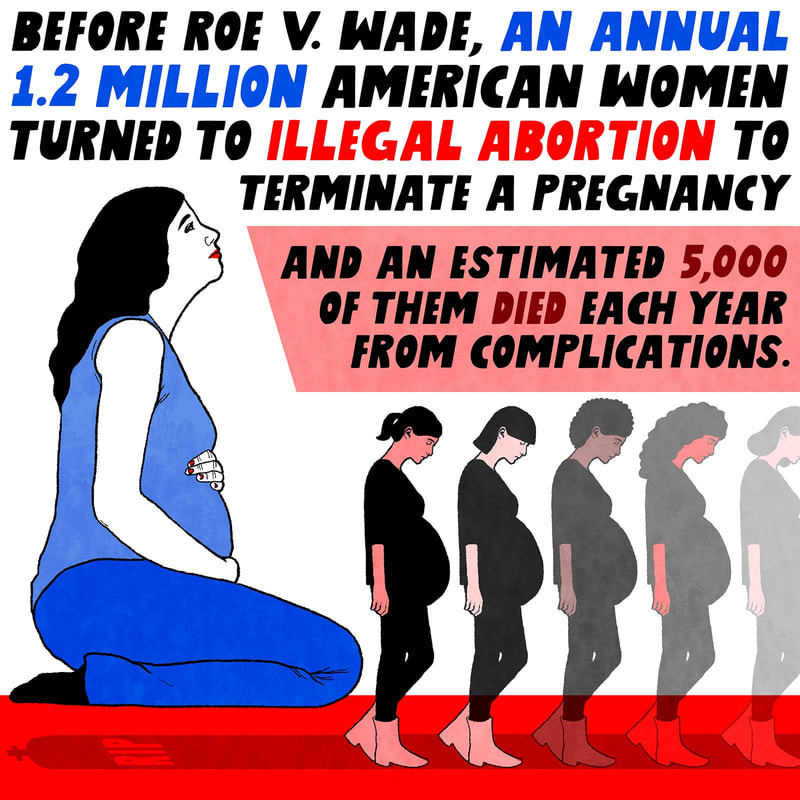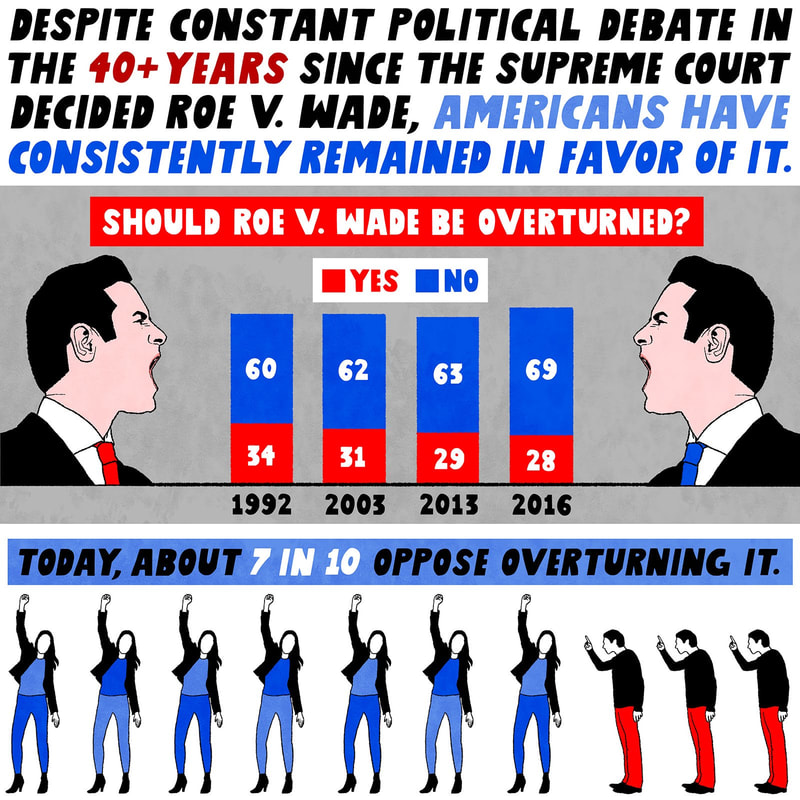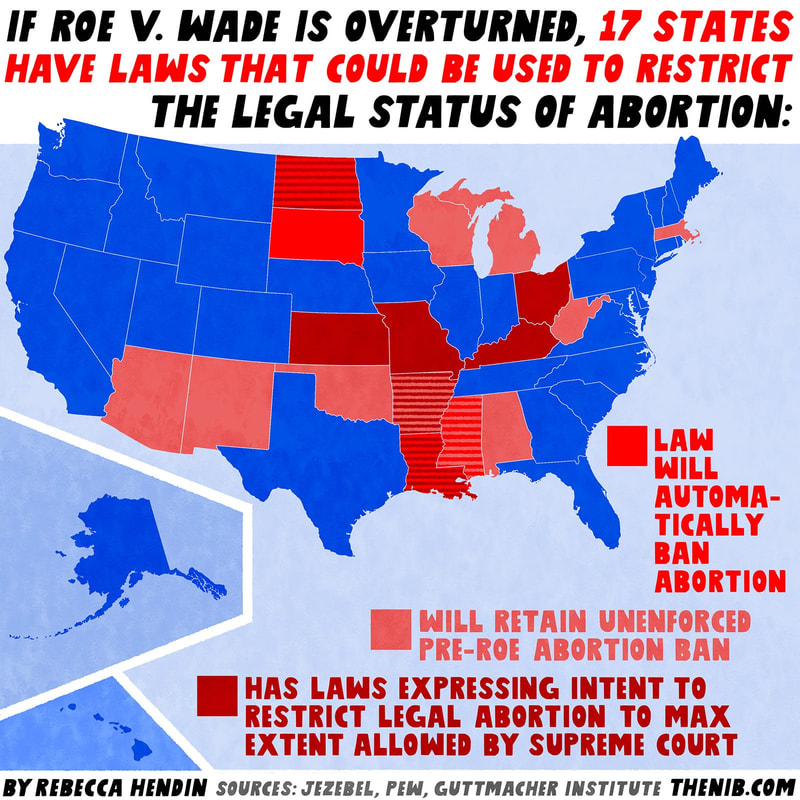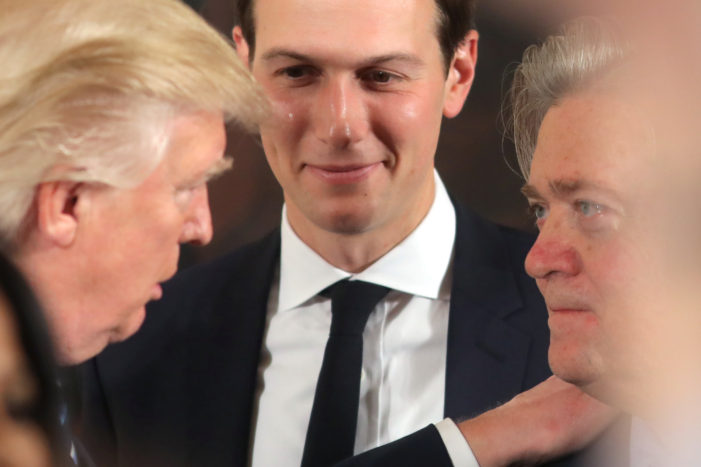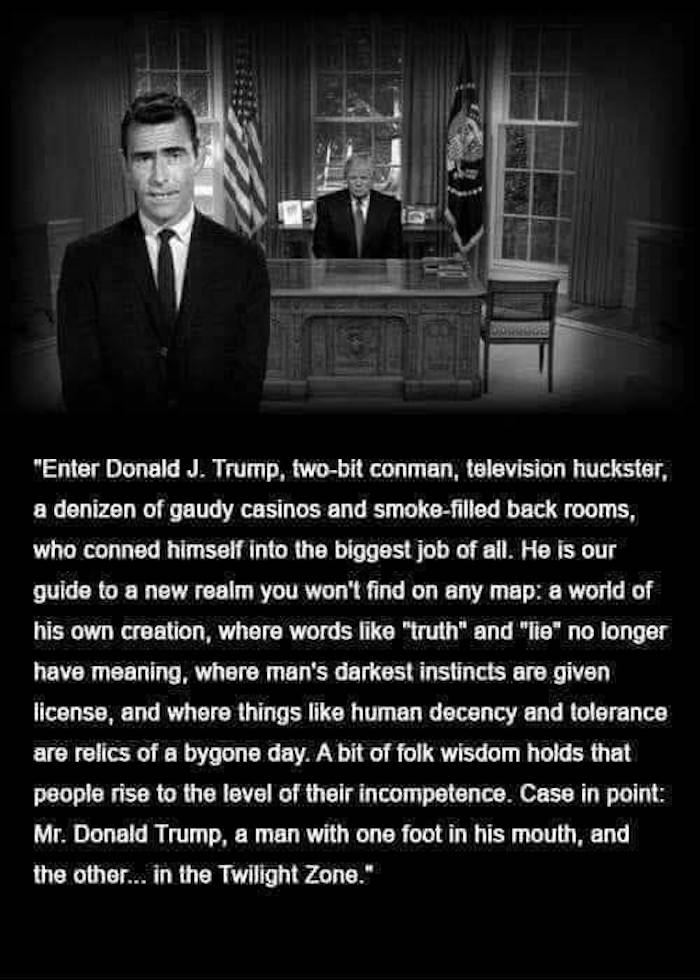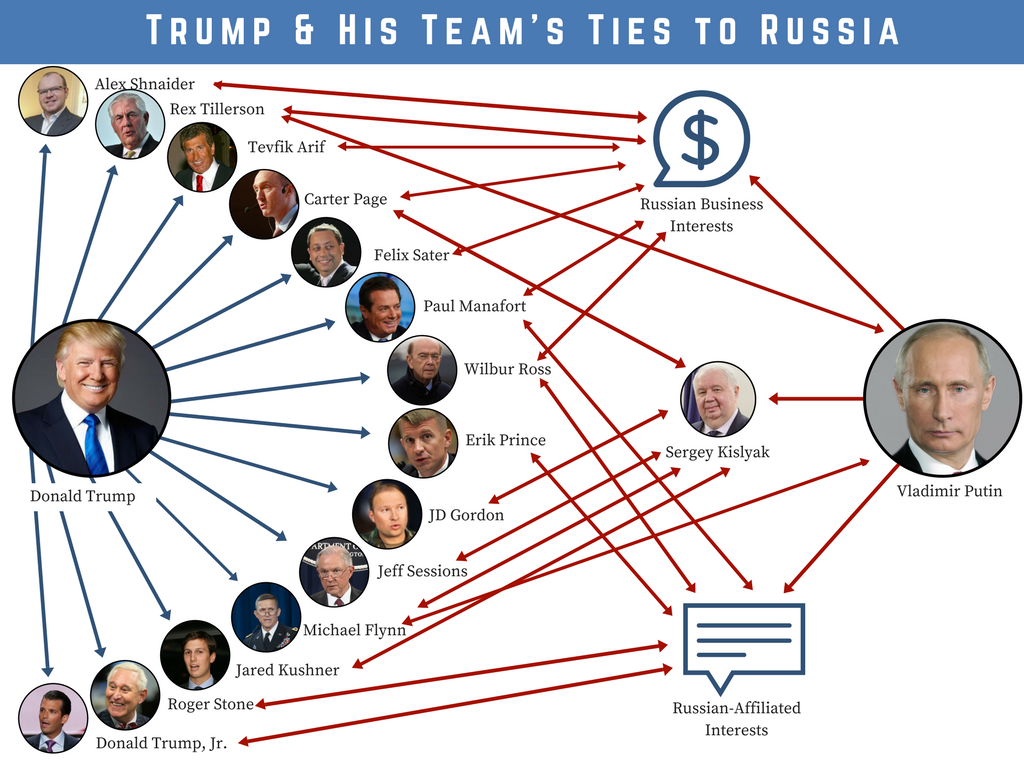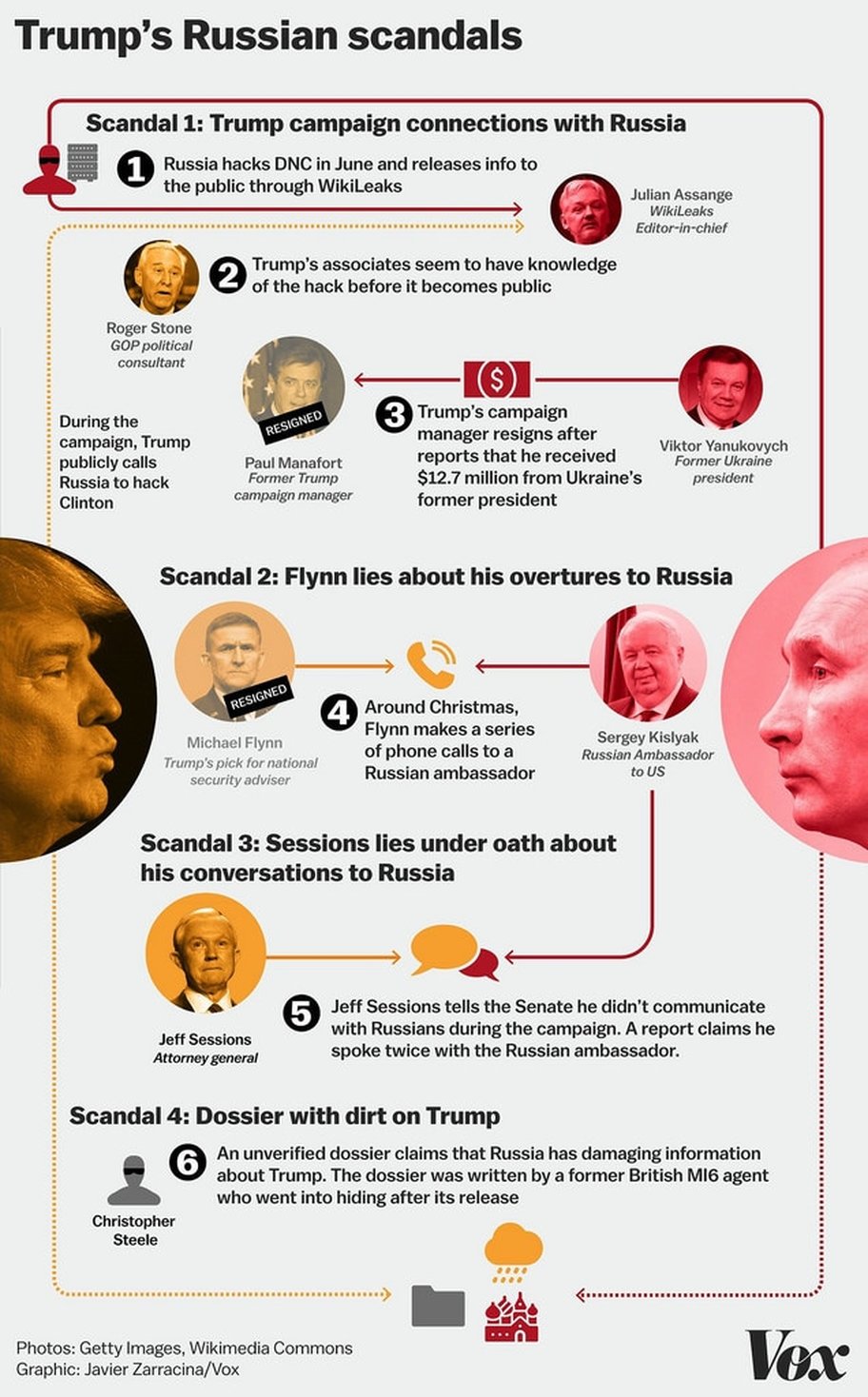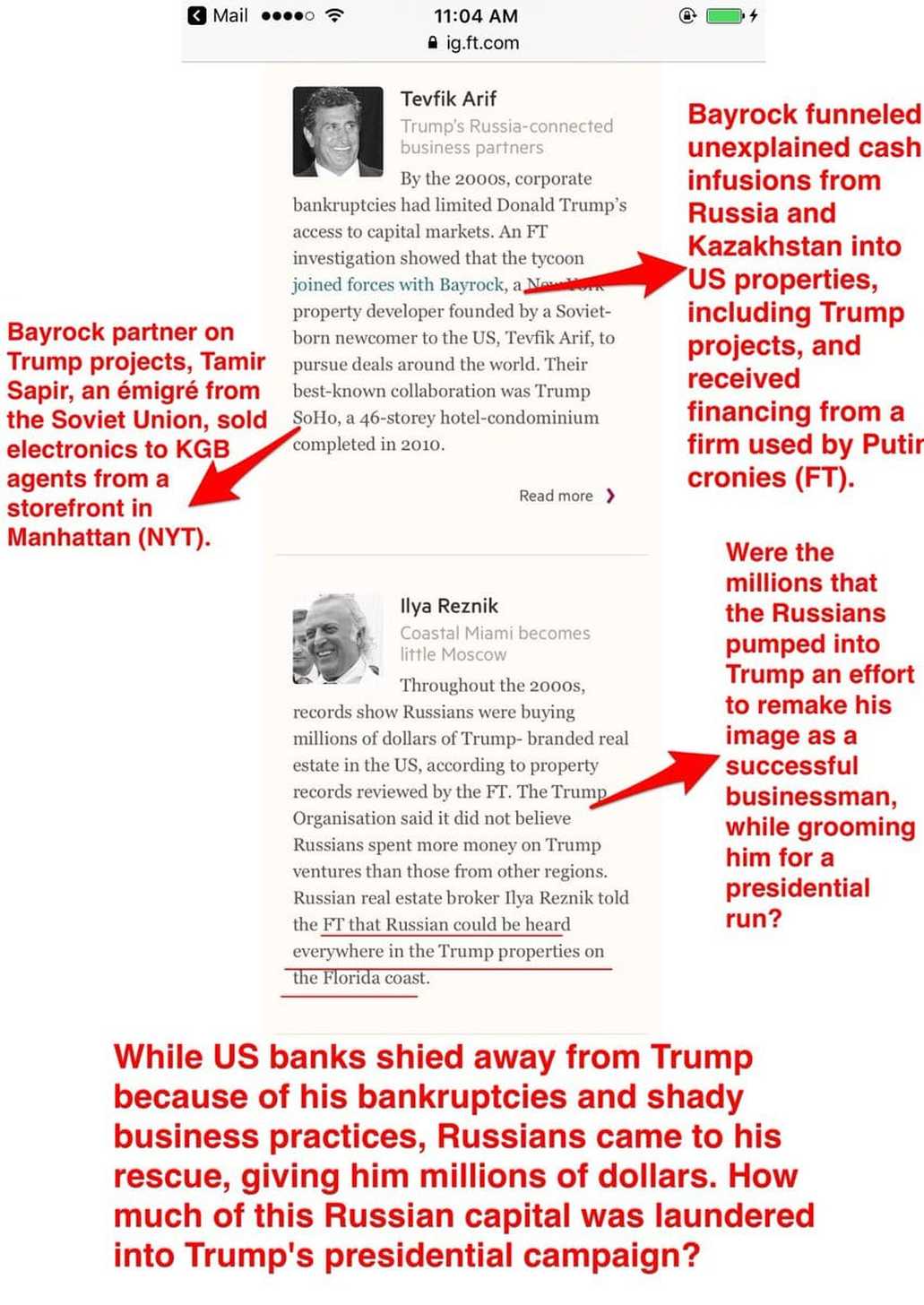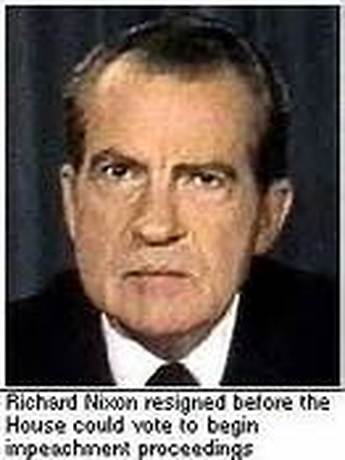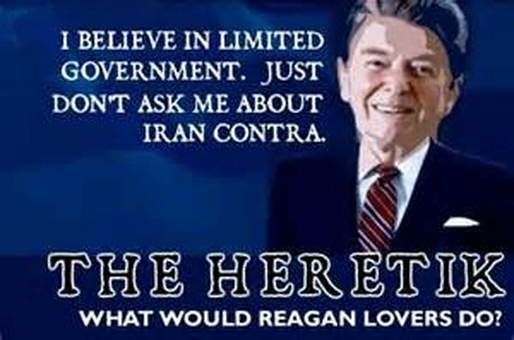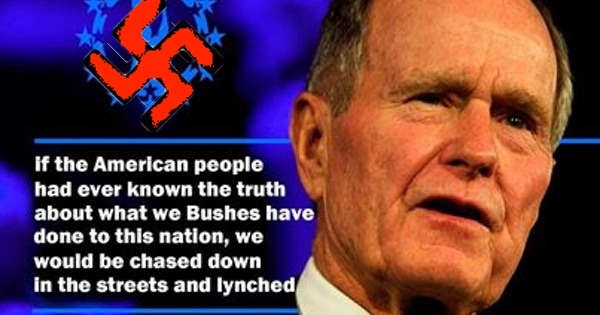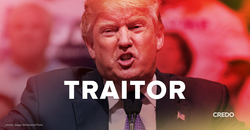Reality Archives
the decline of america under ronald reagan
David Rothkopf✔
@djrothkopf
Someday it will be crystal clear to all just what a terrible president Ronald Reagan was--he stuck the knife in the heart of the American dream, launched us toward our polarized society, was racist, corrupt, fiscally irresponsible, bad at the job. https://twitter.com/WardQNormal/status/1206280031552454656 …
More Things You Have To Believe To Be A Republican Today: Life, The Universe, And Everything Edition
Fritz67 @democratic underground
* Donald Trump is saving the coal industry.
* It's totally appropriate that the United States government be more concerned about wildfires in Siberia than wildfires in California.
* Making less money and being criticized by the press is exactly as big a sacrifice as dying in the service of defending the country.
* Yet another new crime: Eating while black.
Straight from a meme mentioned here:
* People willing to testify under oath are liars, and those who refuse are truth-tellers.
* Impeaching Donald Trump would undermine the intentions of the American people, even though Donald Trump didn't win the popular vote in 2016.
From struggle4progress on the above thread:
* The President having unchecked power to do whatever he wants is an example of "limited government".
* Every time Hillary Clinton had the sniffles, it meant she was secretly dying of bubonic plague. Donald Trump's mysterious, unannounced, unscheduled hospital visit was "routine" and clearly a sign that Trump is the healthiest human being that ever lived.
* It's completely appropriate for Trump to bribe Senators who will serve as jury in his impeachment trial triggered by his being caught trying to extort Ukraine for a bribe.
* Impeachment for crimes you loudly admit you committed is worse than being nailed to a cross.
* Donald Trump is saving the American steel industry.
* Trump's trade war is helping the economy.
* You're totally okay with those close to the president of the United States, and maybe even the (unelected) president himself, discussing putting out a hit on a US ambassador.
* Donald Trump, who has provably lied over FIFTEEN THOUSAND TIMES in three years, can accuse others of having a "credibility problem".
* There is plenty of thick vegetation to hide in in space.
* The best way to show that gun control is unnecessary is to whip up a heavily armed, belligerent mob to wave around their guns and threaten politicians.
* "Abuse of Power" is a crime that can only be committed by Democrats.
* Having an account on Ashley Madison, a site that sets up extramarital affairs, is "inappropriate" for a Congressional candidate of the party that has a thrice-married serial adulterer who pays off porn stars as its standard bearer.
* You think it's smart politics to defend Donald Trump from charges of soliciting bribes from Ukraine by hiring a state attorney general that Trump had previously bribed.
* Spending three decades lying to your audience and poisoning political discourse with divisiveness and hate is an act worthy of a Medal of Freedom.
* Traitor: Alexander Vindman. Heroic patriot: Eddie Gallagher.
* Relevant to morality discussions: Pete Buttigieg's happy marriage to a man. Not relevant to morality discussions: Donald Trump's multiple marriages, during all of which he cheated.
* Donald Trump is responsible for the economic recovery that began eight years before he took office.
Speaking of a certain Medal of Freedom winner...
* The coronavirus outbreak is a conspiracy to make Donald Trump look bad.
Like Trump needs a conspiracy to make him look like an incompetent jackass who doesn't care about other people. I mean, his ideas for how to deal with it are...
* Solution to the coronavirus: Cut taxes for the rich and cut the budget to public health infrastructure.
* Senator Bernie Sanders once played football for the Detroit Lions.
* It's totally appropriate that the United States government be more concerned about wildfires in Siberia than wildfires in California.
* Making less money and being criticized by the press is exactly as big a sacrifice as dying in the service of defending the country.
* Yet another new crime: Eating while black.
Straight from a meme mentioned here:
* People willing to testify under oath are liars, and those who refuse are truth-tellers.
* Impeaching Donald Trump would undermine the intentions of the American people, even though Donald Trump didn't win the popular vote in 2016.
From struggle4progress on the above thread:
* The President having unchecked power to do whatever he wants is an example of "limited government".
* Every time Hillary Clinton had the sniffles, it meant she was secretly dying of bubonic plague. Donald Trump's mysterious, unannounced, unscheduled hospital visit was "routine" and clearly a sign that Trump is the healthiest human being that ever lived.
* It's completely appropriate for Trump to bribe Senators who will serve as jury in his impeachment trial triggered by his being caught trying to extort Ukraine for a bribe.
* Impeachment for crimes you loudly admit you committed is worse than being nailed to a cross.
* Donald Trump is saving the American steel industry.
* Trump's trade war is helping the economy.
* You're totally okay with those close to the president of the United States, and maybe even the (unelected) president himself, discussing putting out a hit on a US ambassador.
* Donald Trump, who has provably lied over FIFTEEN THOUSAND TIMES in three years, can accuse others of having a "credibility problem".
* There is plenty of thick vegetation to hide in in space.
* The best way to show that gun control is unnecessary is to whip up a heavily armed, belligerent mob to wave around their guns and threaten politicians.
* "Abuse of Power" is a crime that can only be committed by Democrats.
* Having an account on Ashley Madison, a site that sets up extramarital affairs, is "inappropriate" for a Congressional candidate of the party that has a thrice-married serial adulterer who pays off porn stars as its standard bearer.
* You think it's smart politics to defend Donald Trump from charges of soliciting bribes from Ukraine by hiring a state attorney general that Trump had previously bribed.
* Spending three decades lying to your audience and poisoning political discourse with divisiveness and hate is an act worthy of a Medal of Freedom.
* Traitor: Alexander Vindman. Heroic patriot: Eddie Gallagher.
* Relevant to morality discussions: Pete Buttigieg's happy marriage to a man. Not relevant to morality discussions: Donald Trump's multiple marriages, during all of which he cheated.
* Donald Trump is responsible for the economic recovery that began eight years before he took office.
Speaking of a certain Medal of Freedom winner...
* The coronavirus outbreak is a conspiracy to make Donald Trump look bad.
Like Trump needs a conspiracy to make him look like an incompetent jackass who doesn't care about other people. I mean, his ideas for how to deal with it are...
* Solution to the coronavirus: Cut taxes for the rich and cut the budget to public health infrastructure.
* Senator Bernie Sanders once played football for the Detroit Lions.
What Would a Post-Roe v. Wade World Look Like?
by Stats
Posted July 6th, 2018
THE TRUMP CRIME FAMILY
onepercenttakers.com
Extended Trump Family Ties to Organized Crime
No previous United States president has had anything close to Donald J. Trump’s record of repeated social and business dealings with mobsters, swindlers, and other crooks.
Investigative reporter Wayne Barrett wrote that Trump didn’t just do business with mobbed-up concrete companies in Manhattan in his early career. He likely met personally with “Fat Tony” Salerno at the townhouse of notorious New York fixer Roy Cohn. There were witnesses to the meeting, one of whom kept detailed notes on all of Cohn’s contacts.
Cohn was a mob consigliere of Salerno, boss of the Genovese crime family, the most powerful Mafia group in New York, and Paul Castellano, head of the Gambino crime family.
In the 1980s and 1990s, Trump had partnered with men with organized crime ties in New York and Atlantic City. Later, he and his children would also strike deals in Brazil and Azerbaijan with partners who had shadowy backgrounds or unusual legal entanglements.
Thanks in part to the laxity of New Jersey gaming investigators, Trump has never had to address his dealings with mobsters and swindlers head-on.
After the collapse of the Soviet Union, Trump saw a opportunity to cash in there. Trump testified under oath in a 2007 deposition, “It’s ridiculous that I wouldn’t be investing in Russia. Russia is one of the hottest places in the world for investment.”
A conduit for Trump’s dealings with Russia’s newly minted, mobbed-up oligarchs was a company that marketed itself as a property developer, the Bayrock Group. Bayrock operated just two floors beneath Trump’s own office on the 26th floor in Trump Tower.
In a 2007 deposition, Trump testified that Bayrock would bring Russian investors to his Trump Tower office to discuss deals in Moscow.
One of Bayrock’s directors was career criminal Felix Sater who had ties to Russian and American organized crime groups. Before linking up with Bayrock and with Trump, Slater had worked as a mob informant for the U.S. government.
Slater had gone to prison for slashing another man’s face with the stem of a broken margarita glass. Later, he fled to Moscow to avoid criminal charges while boasting of his KGB and Kremlin contacts there.
Slater’s one-time business partner, Salvatore Lauria reported that Slater “was always hustling and scheming, and his contacts in Russia were the same kind of contacts he had in the United States. Lauria continued, “The difference was that in Russia his crooked contacts were links between Russian organized crime, the Russian military, the KGB, and operatives who played both ways, or sometimes three ways.”
In a series of interviews, a former Bayrock insider, Jody Kriss, claims that he eventually departed from Bayrock because he became convinced that the firm was actually a front for money laundering.
In April 2013, police burst into Unit 63A of Trump Tower and rounded up 29 suspects in two gambling rings. The operation, which prosecutors called “the world’s largest sports book,” was run out of condos in Trump Tower—including the entire fifty-first floor of the building. Unit 63A served as the headquarters for a “sophisticated money-laundering scheme” that moved an estimated $100 million out of the former Soviet Union, through shell companies in Cyprus, and into investments in the United States.
In addition, the Taj Mahal was fined $10 million in 2015—the highest penalty ever levied by the feds against a casino—and admitted to having “willfully violated” anti-money-laundering regulations for years.
A Justice Department investigation led by Robert Mueller is also looking into whether Trump associates laundered financial payoffs from Russian officials by channeling them through offshore accounts.
Sins of the Father
“My legacy has its roots in my father’s legacy.” –Donald Trump
According to his obituary, Donald Trump’s father, Fred Trump was born in 1905, in New York, the son of German immigrants.
In 1927, Fred Trump started Elizabeth Trump & Son Co., the real estate company that would later become The Trump Organization. Fred Trump began his career constructing low-income apartments and row houses in Brooklyn and Queens, New York.
As with his son Donald, accusations of racism would dog real estate developer Fred Trump for much of his life.
According to an article in the New York Times, in September 1927, Fred Trump was arrested during a Ku Klux Klan rally in New York. Fred Trump (whose name and address was listed in the article) was one of seven men arrested “in a near-riot.” The men were also accused of assaulting a police officer and taken into custody.
Fred Trump’s backward views on race would reemerge in later years. In 1973, the U.S. Justice Department’s Civil Rights Division filed suit against Trump and his company for refusing to rent apartments to black people. The suit followed an investigation by the Urban League which sent white and black testers to apartments owned by Trump. The testers found that white applicants were able to rent apartments, while blacks weren’t.
The Department of Justice concluded that “racially discriminatory conduct by Trump agents has occurred with such frequency that it has created a substantial impediment to the full enjoyment of equal opportunity.” Trump was forced by the Justice Department to sign a consent degree, requiring him to advertise vacancies in minority papers and to list them with the Urban League.
One of Fred Trump’s former tenants was none other than folk music legend Woody Guthrie. Guthrie wrote a song that referred to Fred Trump as, “Old Man Trump” and added that Trump “drew a color line” by forcing minorities into segregated housing.
Ivana Trump Says Donald Kept a Copy of Hitler’s Speeches for Bedtime Reading
Like Germany’s dictator Adolf Hitler, real-estate mogul Donald Trump frequently uses racism, xenophobia, and other techniques of scapegoating to incite his coalition of angry voters.
According to a Vanity Fair article by Marie Brenner, Ivana Trump once told her lawyer Michael Kennedy that her husband, Donald Trump, kept a book of Hitler’s speeches by his bed.
“Last April, perhaps in a surge of Czech nationalism, Ivana Trump told her lawyer Michael Kennedy that from time to time her husband reads a book of Hitler’s collected speeches, My New Order, which he keeps in a cabinet by his bed … Hitler’s speeches, from his earliest days up through the Phony War of 1939, reveal his extraordinary ability as a master propagandist,” Marie Brenner wrote.
When Brenner asked Trump about how he got a copy of Hitler’s speeches, “Trump hesitated” and then queried, “Who told you that.”
“I don’t remember,” Brenner replied.
Trump then said, “Actually, it was my friend Marty Davis from Paramount who gave me a copy of Mein Kampf, and he’s a Jew.” (“I did give him a book about Hitler,” Marty Davis acknowledged. “But it was My New Order, Hitler’s speeches, not Mein Kampf. I thought he would find it interesting. I am his friend, but I’m not Jewish.”)
Later in the Vanity Fair article, Trump returned to the subject of Hitler’s speeches and said, “If, I had these speeches, and I am not saying that I do, I would never read them.”
Ivana Trump also told a friend that her husband’s cousin, John Walter “clicks his heels and says, ‘Heil Hitler,” when visiting Trump’s office.
Investigation Reveals that Trump Made Millions from Drug Money Laundering in Panama
President Donald Trump made millions of dollars in profits by allowing Colombian drug cartels and other groups to launder money through a Trump-affiliated hotel in Panama, according to an investigation by the organization Global Witness.
In the early 2000s, a series of bankruptcies meant Donald Trump was shunned by most lenders. Struggling for credit, Trump started selling his name to high-end real estate projects. One of these developed Panama’s Trump Ocean Club International Hotel and Tower.
In its report, Global Witness said that Colombian drug cartels purchased hotel units to hide the origins of money earned through drug trafficking, and that Trump was one of the biggest beneficiaries of the money laundering.
At the time Trump Ocean Club was announced in 2006 and launched in 2011, Panama was known as one of the best places in the world to launder money. Whole neighborhoods in Panama City were taken over by organized crime groups, and luxury developments were built to serve as money laundering vehicles.
Investing in luxury properties is a tried and trusted way for criminals to move tainted cash into the legitimate financial system, where they can spend it freely.
One key player at the Trump Ocean Club was David Eduardo Helmut Murcia Guzmán, who a U.S. court subsequently sentenced to nine years in prison for laundering millions in drug money. Another was Guzmán’s business associate, Ventura Nogueira, who brokered nearly a third of the pre-construction unit sales at the Trump Ocean Club. Nogueira’s sales brokerage was critical to ensuring the project’s lift-off and Trump’s ability to earn tens of millions of dollars.
At Trump Ocean Club, Trump received a percentage of the financing he helped secure. He also got a cut on every unit sold at the development. Trump and his family made millions more from management fees. The family even participated in marketing and project design. Broker Ventura Nogueira said that Trump’s daughter Ivanka met with him and project developer Roger Khafif at least ten times.
Nogueira told both NBC News and Reuters that many of those involved with the Trump Ocean Club were Russians and Eastern Europeans with “questionable backgrounds.” Nogueira added that he found out later that some were part of the Russian Mafia.
Among the shady buyers were:
Louis Pargiolas, who pleaded guilty in 2009 in Miami to conspiracy to import cocaine.
Stanislav Kavalenka, a Russian national charged in Canada for compelling women into prostitution.
Arkady Vodovozov, convicted in Israel of kidnapping, according to Reuters.
With the Russian government’s alleged interference in the 2016 U.S. presidential election, much has been made of Trump’s heavy reliance on funds from Russia for his licensing deals, and some of this money has come from Russian criminal networks.
No previous United States president has had anything close to Donald J. Trump’s record of repeated social and business dealings with mobsters, swindlers, and other crooks.
Investigative reporter Wayne Barrett wrote that Trump didn’t just do business with mobbed-up concrete companies in Manhattan in his early career. He likely met personally with “Fat Tony” Salerno at the townhouse of notorious New York fixer Roy Cohn. There were witnesses to the meeting, one of whom kept detailed notes on all of Cohn’s contacts.
Cohn was a mob consigliere of Salerno, boss of the Genovese crime family, the most powerful Mafia group in New York, and Paul Castellano, head of the Gambino crime family.
In the 1980s and 1990s, Trump had partnered with men with organized crime ties in New York and Atlantic City. Later, he and his children would also strike deals in Brazil and Azerbaijan with partners who had shadowy backgrounds or unusual legal entanglements.
Thanks in part to the laxity of New Jersey gaming investigators, Trump has never had to address his dealings with mobsters and swindlers head-on.
After the collapse of the Soviet Union, Trump saw a opportunity to cash in there. Trump testified under oath in a 2007 deposition, “It’s ridiculous that I wouldn’t be investing in Russia. Russia is one of the hottest places in the world for investment.”
A conduit for Trump’s dealings with Russia’s newly minted, mobbed-up oligarchs was a company that marketed itself as a property developer, the Bayrock Group. Bayrock operated just two floors beneath Trump’s own office on the 26th floor in Trump Tower.
In a 2007 deposition, Trump testified that Bayrock would bring Russian investors to his Trump Tower office to discuss deals in Moscow.
One of Bayrock’s directors was career criminal Felix Sater who had ties to Russian and American organized crime groups. Before linking up with Bayrock and with Trump, Slater had worked as a mob informant for the U.S. government.
Slater had gone to prison for slashing another man’s face with the stem of a broken margarita glass. Later, he fled to Moscow to avoid criminal charges while boasting of his KGB and Kremlin contacts there.
Slater’s one-time business partner, Salvatore Lauria reported that Slater “was always hustling and scheming, and his contacts in Russia were the same kind of contacts he had in the United States. Lauria continued, “The difference was that in Russia his crooked contacts were links between Russian organized crime, the Russian military, the KGB, and operatives who played both ways, or sometimes three ways.”
In a series of interviews, a former Bayrock insider, Jody Kriss, claims that he eventually departed from Bayrock because he became convinced that the firm was actually a front for money laundering.
In April 2013, police burst into Unit 63A of Trump Tower and rounded up 29 suspects in two gambling rings. The operation, which prosecutors called “the world’s largest sports book,” was run out of condos in Trump Tower—including the entire fifty-first floor of the building. Unit 63A served as the headquarters for a “sophisticated money-laundering scheme” that moved an estimated $100 million out of the former Soviet Union, through shell companies in Cyprus, and into investments in the United States.
In addition, the Taj Mahal was fined $10 million in 2015—the highest penalty ever levied by the feds against a casino—and admitted to having “willfully violated” anti-money-laundering regulations for years.
A Justice Department investigation led by Robert Mueller is also looking into whether Trump associates laundered financial payoffs from Russian officials by channeling them through offshore accounts.
Sins of the Father
“My legacy has its roots in my father’s legacy.” –Donald Trump
According to his obituary, Donald Trump’s father, Fred Trump was born in 1905, in New York, the son of German immigrants.
In 1927, Fred Trump started Elizabeth Trump & Son Co., the real estate company that would later become The Trump Organization. Fred Trump began his career constructing low-income apartments and row houses in Brooklyn and Queens, New York.
As with his son Donald, accusations of racism would dog real estate developer Fred Trump for much of his life.
According to an article in the New York Times, in September 1927, Fred Trump was arrested during a Ku Klux Klan rally in New York. Fred Trump (whose name and address was listed in the article) was one of seven men arrested “in a near-riot.” The men were also accused of assaulting a police officer and taken into custody.
Fred Trump’s backward views on race would reemerge in later years. In 1973, the U.S. Justice Department’s Civil Rights Division filed suit against Trump and his company for refusing to rent apartments to black people. The suit followed an investigation by the Urban League which sent white and black testers to apartments owned by Trump. The testers found that white applicants were able to rent apartments, while blacks weren’t.
The Department of Justice concluded that “racially discriminatory conduct by Trump agents has occurred with such frequency that it has created a substantial impediment to the full enjoyment of equal opportunity.” Trump was forced by the Justice Department to sign a consent degree, requiring him to advertise vacancies in minority papers and to list them with the Urban League.
One of Fred Trump’s former tenants was none other than folk music legend Woody Guthrie. Guthrie wrote a song that referred to Fred Trump as, “Old Man Trump” and added that Trump “drew a color line” by forcing minorities into segregated housing.
Ivana Trump Says Donald Kept a Copy of Hitler’s Speeches for Bedtime Reading
Like Germany’s dictator Adolf Hitler, real-estate mogul Donald Trump frequently uses racism, xenophobia, and other techniques of scapegoating to incite his coalition of angry voters.
According to a Vanity Fair article by Marie Brenner, Ivana Trump once told her lawyer Michael Kennedy that her husband, Donald Trump, kept a book of Hitler’s speeches by his bed.
“Last April, perhaps in a surge of Czech nationalism, Ivana Trump told her lawyer Michael Kennedy that from time to time her husband reads a book of Hitler’s collected speeches, My New Order, which he keeps in a cabinet by his bed … Hitler’s speeches, from his earliest days up through the Phony War of 1939, reveal his extraordinary ability as a master propagandist,” Marie Brenner wrote.
When Brenner asked Trump about how he got a copy of Hitler’s speeches, “Trump hesitated” and then queried, “Who told you that.”
“I don’t remember,” Brenner replied.
Trump then said, “Actually, it was my friend Marty Davis from Paramount who gave me a copy of Mein Kampf, and he’s a Jew.” (“I did give him a book about Hitler,” Marty Davis acknowledged. “But it was My New Order, Hitler’s speeches, not Mein Kampf. I thought he would find it interesting. I am his friend, but I’m not Jewish.”)
Later in the Vanity Fair article, Trump returned to the subject of Hitler’s speeches and said, “If, I had these speeches, and I am not saying that I do, I would never read them.”
Ivana Trump also told a friend that her husband’s cousin, John Walter “clicks his heels and says, ‘Heil Hitler,” when visiting Trump’s office.
Investigation Reveals that Trump Made Millions from Drug Money Laundering in Panama
President Donald Trump made millions of dollars in profits by allowing Colombian drug cartels and other groups to launder money through a Trump-affiliated hotel in Panama, according to an investigation by the organization Global Witness.
In the early 2000s, a series of bankruptcies meant Donald Trump was shunned by most lenders. Struggling for credit, Trump started selling his name to high-end real estate projects. One of these developed Panama’s Trump Ocean Club International Hotel and Tower.
In its report, Global Witness said that Colombian drug cartels purchased hotel units to hide the origins of money earned through drug trafficking, and that Trump was one of the biggest beneficiaries of the money laundering.
At the time Trump Ocean Club was announced in 2006 and launched in 2011, Panama was known as one of the best places in the world to launder money. Whole neighborhoods in Panama City were taken over by organized crime groups, and luxury developments were built to serve as money laundering vehicles.
Investing in luxury properties is a tried and trusted way for criminals to move tainted cash into the legitimate financial system, where they can spend it freely.
One key player at the Trump Ocean Club was David Eduardo Helmut Murcia Guzmán, who a U.S. court subsequently sentenced to nine years in prison for laundering millions in drug money. Another was Guzmán’s business associate, Ventura Nogueira, who brokered nearly a third of the pre-construction unit sales at the Trump Ocean Club. Nogueira’s sales brokerage was critical to ensuring the project’s lift-off and Trump’s ability to earn tens of millions of dollars.
At Trump Ocean Club, Trump received a percentage of the financing he helped secure. He also got a cut on every unit sold at the development. Trump and his family made millions more from management fees. The family even participated in marketing and project design. Broker Ventura Nogueira said that Trump’s daughter Ivanka met with him and project developer Roger Khafif at least ten times.
Nogueira told both NBC News and Reuters that many of those involved with the Trump Ocean Club were Russians and Eastern Europeans with “questionable backgrounds.” Nogueira added that he found out later that some were part of the Russian Mafia.
Among the shady buyers were:
Louis Pargiolas, who pleaded guilty in 2009 in Miami to conspiracy to import cocaine.
Stanislav Kavalenka, a Russian national charged in Canada for compelling women into prostitution.
Arkady Vodovozov, convicted in Israel of kidnapping, according to Reuters.
With the Russian government’s alleged interference in the 2016 U.S. presidential election, much has been made of Trump’s heavy reliance on funds from Russia for his licensing deals, and some of this money has come from Russian criminal networks.
How Putin's proxies helped funnel millions into GOP campaigns
Ruth May, Contributor
dallas news
https://www.dallasnews.com/opinion/commentary/2017/12/15/putins-proxies-helped-funnel-millions-gop-campaigns
As Special Counsel Robert Mueller's team probes deeper into potential collusion between Trump officials and representatives of the Russian government, investigators are taking a closer look at political contributions made by U.S. citizens with close ties to Russia.
Buried in the campaign finance reports available to the public are some troubling connections between a group of wealthy donors with ties to Russia and their political contributions to President Donald Trump and a number of top Republican leaders. And thanks to changes in campaign finance laws, the political contributions are legal. We have allowed our campaign finance laws to become a strategic threat to our country.
An example is Len Blavatnik, a dual U.S.-U.K. citizen and one of the largest donors to GOP political action committees in the 2015-16 election cycle. Blavatnik's family emigrated to the U.S. in the late '70s from the U.S.S.R. and he returned to Russia when the Soviet Union began to collapse in the late '80s.
Data from the Federal Election Commission show that Blavatnik's campaign contributions dating back to 2009-10 were fairly balanced across party lines and relatively modest for a billionaire. During that season he contributed $53,400. His contributions increased to $135,552 in 2011-12 and to $273,600 in 2013-14, still bipartisan.
In 2015-16, everything changed. Blavatnik's political contributions soared and made a hard right turn as he pumped $6.35 million into GOP political action committees, with millions of dollars going to top Republican leaders including Sens. Mitch McConnell, Marco Rubio and Lindsey Graham.
In 2017, donations continued, with $41,000 going to both Republican and Democrat candidates, along with $1 million to McConnell's Senate Leadership Fund.
So is this legal?
Rep. Adam Schiff, D-Calif., the ranking Democratic leader on the House Intelligence Committee, told ABC News in September: "Unless the contributions were directed by a foreigner, they would be legal, but could still be of interest to investigators examining allegations of Russian influence on the 2016 campaign. Obviously, if there were those that had associations with the Kremlin that were contributing, that would be of keen concern."
Under federal law, foreigner nationals are barred from contributing directly or indirectly to political campaigns in local, state and federal elections.
Should Blavatnik's contributions concern Mueller's team of investigators? Take a look at his long-time business associates in Russia.
The Oligarchs
Oleg Deripaska is said to be one of Russian President Vladimir Putin's favorite oligarchs, and he is founder and majority shareholder of Russia's Rusal, the second-largest aluminum company in the world. Blavatnik holds a stake in Rusal with a business partner.
Further, nearly 4 percent of Deripaska's stake in Rusal is owned by Putin's state-controlled bank, VTB, which is currently under U.S. sanctions. VTB was exposed in the Panama Papers in 2016 for facilitating the flow of billions of dollars to offshore companies linked to Putin.
Earlier this year, The Associated Press reported that Paul Manafort, Trump's former campaign manager, began collecting $10 million a year in 2006 from Deripaska to advance Putin's interests with Western governments. Deripaska's name turned up again in an email handed over to Mueller's team by Manafort's attorneys. According to The Washington Post, in the email dated July 7, 2016, just two weeks before Trump accepted the Republican nomination for president, Manafort asked an overseas intermediary to pass a message on to Deripaska: "If he [Deripaska] needs private briefings, tell him we can accommodate."
Viktor Vekselberg is one of the 10 richest men in Russia. He and long-time business partner Blavatnik hold a 20.5 percent stake in Rusal. (They met while attending university in Russia.)
In 1990, Blavatnik and Vekselberg co-founded the Renova Group for large-scale investments in energy, infrastructure, aluminum and other metals. One of their earliest investments was in Tyumen Oil Co. (TNK), founded in 1995. TNK is best known for its contentious partnership with British Petroleum after the two entities formed a joint venture in 2003. That rocky relationship ended 10 years later when they sold out to the state-controlled energy giant, Rosneft, under pressure from the Russian government.
As for BP, that pressure took the form of growing harassment and intimidation from Russian authorities who at one point, according to Forbes, refused to renew visas for BP employees, forcing BP's joint venture chief Robert Dudley (who is now chief executive of BP) to flee Russia and manage TNK-BP from a foreign outpost in a secret location.
Vekselberg has connections to at least two Americans who made significant GOP campaign contributions during the last cycle. They are among several Americans who also merit Mueller's scrutiny.
The Americans
Andrew Intrater, according to Mother Jones, is Vekselberg's cousin. He is also chief executive of Columbus Nova, Renova's U.S. investment arm located in New York. (FEC records list his employer as Renova US Management LLC.)
Intrater had no significant history of political contributions prior to the 2016 elections. But in January 2017 he contributed $250,000 to Trump's Inaugural Committee. His six-figure gift bought him special access to a dinner billed as "an intimate policy discussion with select cabinet appointees," according to a brochure obtained by the Center for Public Integrity.
Alexander Shustorovich, chief executive of IMG Artists, attempted to give the Republican Party $250,000 in 2000 to support the George W. Bush presidential campaign, but his money was rejected because of his ties to the Russian government, according to Quartz. So why didn't the Trump team reject Shustorovich's $1 million check to Trump's Inaugural Committee?
Simon Kukes is an oil magnate who has something in common with Intrater. From 1998 to 2003, he worked for Vekselberg and Blavatnik as chief executive of TNK. Redacted CIA documents released in 2003 under the Freedom of Information Act said "TNK president Kukes said that he bribed local officials." The CIA confirmed the authenticity of the reports to The Guardian newspaper but would not comment further. In 2016, Kukes contributed a total of $283,000, much of it to the Trump Victory Fund. He had no significant donor history before last year's election.
There is no doubt that Kukes has close ties to the Putin government. When he left his job as CEO of TNK in June 2003, he joined the board of Yukos Oil, which at the time was the largest oil company in Russia owned by the richest man in Russia, Mikhail Khodorkovsky. Four months after Kukes joined the board, authorities arrested Khodorkovsky at gunpoint on his private plane in Siberia on trumped up charges of tax evasion and tapped Kukes to be CEO. This decision could only have been made at the highest levels in the Kremlin. The arrest of Khodorkovsky rattled the nerves of international investors and was the first tangible sign that Putin was not going to be the kind of leader that global executives and Western governments had expected him to be when he first took office in 2000.
Khodorkovksy was given a 13-year sentence in a Siberian prison and served 10 years before being released by Putin in December 2013, a month before the start of the 2014 winter Olympics in Sochi, as a sign of goodwill. As for the fate of Khodorkovksy's company, its largest oil subsidiary was sold in a sealed bid auction to Baikal Financial Group, a shell company with an unpublished list of officers. Baikal was registered at an address that turned out to be a mobile phone store in Tver, Russia. Three days after the auction, all of Baikal's assets were acquired for an undisclosed sum by Rosneft, the Russian oil giant that went on to buy TNK-BP in 2013.
In total, Blavatnik, Intrater, Shustorovich and Kukes made $10.4 million in political contributions from the start of the 2015-16 election cycle through September 2017, and 99 percent of their contributions went to Republicans. With the exception of Shustorovich, the common denominator that connects the men is their association with Vekselberg. Experts who follow the activities of Russian oligarchs told ABC News that they believe the contributions from Blavatnik, Intrater and Kukes warrant intense scrutiny because they have worked closely with Vekselberg.
Even if the donations by the four men associated with Russia ultimately pass muster with Mueller, one still has to wonder: Why did GOP PACs and other Trump-controlled funds take their money? Why didn't the PACs say, "Thanks, but no thanks," like the Republicans said to Shustorovich in 2000? Yes, it was legal to accept their donations, but it was incredibly poor judgment.
McConnell surely knew as a participant in high level intelligence briefings in 2016 that our electoral process was under attack by the Russians. Two weeks after the Department of Homeland Security and the Office of the Director of National Intelligence issued a joint statement in October 2016 that the Russian government had directed the effort to interfere in our electoral process, McConnell's PAC accepted a $1 million donation from Blavatnik's AI-Altep Holdings. The PAC took another $1 million from Blavatnik's AI-Altep Holdings on March 30, 2017, just 10 days after former FBI Director James Comey publicly testified before the House Intelligence Committee about Russia's interference in the election.
And consider Steve Mnuchin, Trump's campaign finance chairman. Could he have known that the Trump Victory Fund, jointly managed by the Republican National Committe and Trump's campaign, took contributions from Intrater and Kukes? Mnuchin owned Hollywood financing company RatPac-Dune with Blavatnik until he sold his stake to accept Trump's appointment as the Treasury secretary.
Which PAC officials are making the decisions to accept these donations?
The Supreme Court
The contributions are legal because the Supreme Court's 2010 ruling, Citizens United, and several subsequent decisions, allowed American corporations and citizens to give unlimited amounts of money to PACs and non-profit 501c4 organizations, regardless of how they make their money, where they make their money, or with whom they make their money. The only caveat is that PACs and non-profits cannot coordinate their activities with the political candidates they support.
The man who led the winning fight for Citizens United was David Bossie, president of the conservative non-profit since 2001. In 1996, Bossie was hired by Republican Rep. Dan Burton to lead an investigation into President Bill Clinton's campaign fundraising. Burton fired him 18 months later for manipulating recordings of conversations among law officials and Webb Hubbell, a Clinton confidant who resigned as associate attorney general and pleaded guilty to tax fraud during the Whitewater investigation. CNN reported at the time that Newt Gingrich, who was speaker of the House, called Bossie's tampering with the Hubbell recordings an embarrassment to the Republicans.
Bossie served as Trump's deputy campaign chairman.
The Super PAC, Make America Number 1, is primarily funded by Trump's largest donor, Robert Mercer. His Renaissance Technologies hedge fund donated $15.5 million to the PAC.
Mercer's daughter, Rebekah, assumed control of Make America Number 1 in September 2016 and is now tainted by her role in the communications between Wikileaks and Cambridge Analytica, the firm that Trump's son-in-law, Jared Kushner, hired for $5.9 million to handle the digital portion of the Trump campaign.
Robert and Rebekah Mercer are major investors in Cambridge Analytica. According to The Wall Street Journal, Rebekah Mercer asked Cambridge chief executive Alexander Nix if the firm could compile stolen emails related to Hillary Clinton so that they could be more easily searched. (This suggestion came from someone she met at an event supporting Sen. Ted Cruz, according to The Hill. Cambridge Analytica had worked on digital marketing for Cruz before he dropped out of the Republican primary.)
Nix confirmed that he had asked Wikileaks founder Julian Assange to forward the Clinton-related emails. Assange said he declined the request.
Rebekah Mercer also heads the non-profit Making America Great, formed in March 2017. The non-profit ran a seven-figure ad campaign highlighting Trump's achievements. Bossie is the group's chief strategist.
Erik Prince, brother of Secretary of Education Betsy DeVos, contributed $150,000 to Mercer's Make America Number 1 PAC and another $100,000 to the Trump Victory Fund. Prince has recently testified to the House Permanent Select Committee on Intelligence about his trip to the remote Seychelles for a secret meeting in December 2016 with a close ally of Putin, Kirill Dmitriev, head of the Russian Direct Investment Fund. The purpose of the meeting was allegedly to setup a back channel of communication between then president-elect Donald Trump and the Russians, though Prince has denied this allegation. Before the 2015-16 elections, Prince's political contributions totaled a mere $31,800 as far back as 2007, according to FEC records.
The hybrid super-PAC, The Committee to Defend the President, was formed in 2013 under the name Stop Hillary PAC. It is managed by Dan Backer, the lead attorney who won the McCutcheon vs. Federal Election Commission case in 2014. The Supreme Court decision eliminated the cap on how much wealthy individuals can donate to federal candidates, parties and PACs in a single, two-year election cycle.
Like Bossie, Dan Backer helped to open the floodgates to millions of dollars of influence brought to bear on incumbents and their political challengers who are now pressured to kowtow to their donors with the biggest bank accounts, even if their billions are earned in Russian rubles.
Backer was born in Russia and emigrated with his family to the U.S. in 1978.
The changes to our campaign finance laws created an avenue for Russia to try to influence our elections. There are holes in our firewall and they aren't on the internet.
Buried in the campaign finance reports available to the public are some troubling connections between a group of wealthy donors with ties to Russia and their political contributions to President Donald Trump and a number of top Republican leaders. And thanks to changes in campaign finance laws, the political contributions are legal. We have allowed our campaign finance laws to become a strategic threat to our country.
An example is Len Blavatnik, a dual U.S.-U.K. citizen and one of the largest donors to GOP political action committees in the 2015-16 election cycle. Blavatnik's family emigrated to the U.S. in the late '70s from the U.S.S.R. and he returned to Russia when the Soviet Union began to collapse in the late '80s.
Data from the Federal Election Commission show that Blavatnik's campaign contributions dating back to 2009-10 were fairly balanced across party lines and relatively modest for a billionaire. During that season he contributed $53,400. His contributions increased to $135,552 in 2011-12 and to $273,600 in 2013-14, still bipartisan.
In 2015-16, everything changed. Blavatnik's political contributions soared and made a hard right turn as he pumped $6.35 million into GOP political action committees, with millions of dollars going to top Republican leaders including Sens. Mitch McConnell, Marco Rubio and Lindsey Graham.
In 2017, donations continued, with $41,000 going to both Republican and Democrat candidates, along with $1 million to McConnell's Senate Leadership Fund.
So is this legal?
Rep. Adam Schiff, D-Calif., the ranking Democratic leader on the House Intelligence Committee, told ABC News in September: "Unless the contributions were directed by a foreigner, they would be legal, but could still be of interest to investigators examining allegations of Russian influence on the 2016 campaign. Obviously, if there were those that had associations with the Kremlin that were contributing, that would be of keen concern."
Under federal law, foreigner nationals are barred from contributing directly or indirectly to political campaigns in local, state and federal elections.
Should Blavatnik's contributions concern Mueller's team of investigators? Take a look at his long-time business associates in Russia.
The Oligarchs
Oleg Deripaska is said to be one of Russian President Vladimir Putin's favorite oligarchs, and he is founder and majority shareholder of Russia's Rusal, the second-largest aluminum company in the world. Blavatnik holds a stake in Rusal with a business partner.
Further, nearly 4 percent of Deripaska's stake in Rusal is owned by Putin's state-controlled bank, VTB, which is currently under U.S. sanctions. VTB was exposed in the Panama Papers in 2016 for facilitating the flow of billions of dollars to offshore companies linked to Putin.
Earlier this year, The Associated Press reported that Paul Manafort, Trump's former campaign manager, began collecting $10 million a year in 2006 from Deripaska to advance Putin's interests with Western governments. Deripaska's name turned up again in an email handed over to Mueller's team by Manafort's attorneys. According to The Washington Post, in the email dated July 7, 2016, just two weeks before Trump accepted the Republican nomination for president, Manafort asked an overseas intermediary to pass a message on to Deripaska: "If he [Deripaska] needs private briefings, tell him we can accommodate."
Viktor Vekselberg is one of the 10 richest men in Russia. He and long-time business partner Blavatnik hold a 20.5 percent stake in Rusal. (They met while attending university in Russia.)
In 1990, Blavatnik and Vekselberg co-founded the Renova Group for large-scale investments in energy, infrastructure, aluminum and other metals. One of their earliest investments was in Tyumen Oil Co. (TNK), founded in 1995. TNK is best known for its contentious partnership with British Petroleum after the two entities formed a joint venture in 2003. That rocky relationship ended 10 years later when they sold out to the state-controlled energy giant, Rosneft, under pressure from the Russian government.
As for BP, that pressure took the form of growing harassment and intimidation from Russian authorities who at one point, according to Forbes, refused to renew visas for BP employees, forcing BP's joint venture chief Robert Dudley (who is now chief executive of BP) to flee Russia and manage TNK-BP from a foreign outpost in a secret location.
Vekselberg has connections to at least two Americans who made significant GOP campaign contributions during the last cycle. They are among several Americans who also merit Mueller's scrutiny.
The Americans
Andrew Intrater, according to Mother Jones, is Vekselberg's cousin. He is also chief executive of Columbus Nova, Renova's U.S. investment arm located in New York. (FEC records list his employer as Renova US Management LLC.)
Intrater had no significant history of political contributions prior to the 2016 elections. But in January 2017 he contributed $250,000 to Trump's Inaugural Committee. His six-figure gift bought him special access to a dinner billed as "an intimate policy discussion with select cabinet appointees," according to a brochure obtained by the Center for Public Integrity.
Alexander Shustorovich, chief executive of IMG Artists, attempted to give the Republican Party $250,000 in 2000 to support the George W. Bush presidential campaign, but his money was rejected because of his ties to the Russian government, according to Quartz. So why didn't the Trump team reject Shustorovich's $1 million check to Trump's Inaugural Committee?
Simon Kukes is an oil magnate who has something in common with Intrater. From 1998 to 2003, he worked for Vekselberg and Blavatnik as chief executive of TNK. Redacted CIA documents released in 2003 under the Freedom of Information Act said "TNK president Kukes said that he bribed local officials." The CIA confirmed the authenticity of the reports to The Guardian newspaper but would not comment further. In 2016, Kukes contributed a total of $283,000, much of it to the Trump Victory Fund. He had no significant donor history before last year's election.
There is no doubt that Kukes has close ties to the Putin government. When he left his job as CEO of TNK in June 2003, he joined the board of Yukos Oil, which at the time was the largest oil company in Russia owned by the richest man in Russia, Mikhail Khodorkovsky. Four months after Kukes joined the board, authorities arrested Khodorkovsky at gunpoint on his private plane in Siberia on trumped up charges of tax evasion and tapped Kukes to be CEO. This decision could only have been made at the highest levels in the Kremlin. The arrest of Khodorkovsky rattled the nerves of international investors and was the first tangible sign that Putin was not going to be the kind of leader that global executives and Western governments had expected him to be when he first took office in 2000.
Khodorkovksy was given a 13-year sentence in a Siberian prison and served 10 years before being released by Putin in December 2013, a month before the start of the 2014 winter Olympics in Sochi, as a sign of goodwill. As for the fate of Khodorkovksy's company, its largest oil subsidiary was sold in a sealed bid auction to Baikal Financial Group, a shell company with an unpublished list of officers. Baikal was registered at an address that turned out to be a mobile phone store in Tver, Russia. Three days after the auction, all of Baikal's assets were acquired for an undisclosed sum by Rosneft, the Russian oil giant that went on to buy TNK-BP in 2013.
In total, Blavatnik, Intrater, Shustorovich and Kukes made $10.4 million in political contributions from the start of the 2015-16 election cycle through September 2017, and 99 percent of their contributions went to Republicans. With the exception of Shustorovich, the common denominator that connects the men is their association with Vekselberg. Experts who follow the activities of Russian oligarchs told ABC News that they believe the contributions from Blavatnik, Intrater and Kukes warrant intense scrutiny because they have worked closely with Vekselberg.
Even if the donations by the four men associated with Russia ultimately pass muster with Mueller, one still has to wonder: Why did GOP PACs and other Trump-controlled funds take their money? Why didn't the PACs say, "Thanks, but no thanks," like the Republicans said to Shustorovich in 2000? Yes, it was legal to accept their donations, but it was incredibly poor judgment.
McConnell surely knew as a participant in high level intelligence briefings in 2016 that our electoral process was under attack by the Russians. Two weeks after the Department of Homeland Security and the Office of the Director of National Intelligence issued a joint statement in October 2016 that the Russian government had directed the effort to interfere in our electoral process, McConnell's PAC accepted a $1 million donation from Blavatnik's AI-Altep Holdings. The PAC took another $1 million from Blavatnik's AI-Altep Holdings on March 30, 2017, just 10 days after former FBI Director James Comey publicly testified before the House Intelligence Committee about Russia's interference in the election.
And consider Steve Mnuchin, Trump's campaign finance chairman. Could he have known that the Trump Victory Fund, jointly managed by the Republican National Committe and Trump's campaign, took contributions from Intrater and Kukes? Mnuchin owned Hollywood financing company RatPac-Dune with Blavatnik until he sold his stake to accept Trump's appointment as the Treasury secretary.
Which PAC officials are making the decisions to accept these donations?
The Supreme Court
The contributions are legal because the Supreme Court's 2010 ruling, Citizens United, and several subsequent decisions, allowed American corporations and citizens to give unlimited amounts of money to PACs and non-profit 501c4 organizations, regardless of how they make their money, where they make their money, or with whom they make their money. The only caveat is that PACs and non-profits cannot coordinate their activities with the political candidates they support.
The man who led the winning fight for Citizens United was David Bossie, president of the conservative non-profit since 2001. In 1996, Bossie was hired by Republican Rep. Dan Burton to lead an investigation into President Bill Clinton's campaign fundraising. Burton fired him 18 months later for manipulating recordings of conversations among law officials and Webb Hubbell, a Clinton confidant who resigned as associate attorney general and pleaded guilty to tax fraud during the Whitewater investigation. CNN reported at the time that Newt Gingrich, who was speaker of the House, called Bossie's tampering with the Hubbell recordings an embarrassment to the Republicans.
Bossie served as Trump's deputy campaign chairman.
The Super PAC, Make America Number 1, is primarily funded by Trump's largest donor, Robert Mercer. His Renaissance Technologies hedge fund donated $15.5 million to the PAC.
Mercer's daughter, Rebekah, assumed control of Make America Number 1 in September 2016 and is now tainted by her role in the communications between Wikileaks and Cambridge Analytica, the firm that Trump's son-in-law, Jared Kushner, hired for $5.9 million to handle the digital portion of the Trump campaign.
Robert and Rebekah Mercer are major investors in Cambridge Analytica. According to The Wall Street Journal, Rebekah Mercer asked Cambridge chief executive Alexander Nix if the firm could compile stolen emails related to Hillary Clinton so that they could be more easily searched. (This suggestion came from someone she met at an event supporting Sen. Ted Cruz, according to The Hill. Cambridge Analytica had worked on digital marketing for Cruz before he dropped out of the Republican primary.)
Nix confirmed that he had asked Wikileaks founder Julian Assange to forward the Clinton-related emails. Assange said he declined the request.
Rebekah Mercer also heads the non-profit Making America Great, formed in March 2017. The non-profit ran a seven-figure ad campaign highlighting Trump's achievements. Bossie is the group's chief strategist.
Erik Prince, brother of Secretary of Education Betsy DeVos, contributed $150,000 to Mercer's Make America Number 1 PAC and another $100,000 to the Trump Victory Fund. Prince has recently testified to the House Permanent Select Committee on Intelligence about his trip to the remote Seychelles for a secret meeting in December 2016 with a close ally of Putin, Kirill Dmitriev, head of the Russian Direct Investment Fund. The purpose of the meeting was allegedly to setup a back channel of communication between then president-elect Donald Trump and the Russians, though Prince has denied this allegation. Before the 2015-16 elections, Prince's political contributions totaled a mere $31,800 as far back as 2007, according to FEC records.
The hybrid super-PAC, The Committee to Defend the President, was formed in 2013 under the name Stop Hillary PAC. It is managed by Dan Backer, the lead attorney who won the McCutcheon vs. Federal Election Commission case in 2014. The Supreme Court decision eliminated the cap on how much wealthy individuals can donate to federal candidates, parties and PACs in a single, two-year election cycle.
Like Bossie, Dan Backer helped to open the floodgates to millions of dollars of influence brought to bear on incumbents and their political challengers who are now pressured to kowtow to their donors with the biggest bank accounts, even if their billions are earned in Russian rubles.
Backer was born in Russia and emigrated with his family to the U.S. in 1978.
The changes to our campaign finance laws created an avenue for Russia to try to influence our elections. There are holes in our firewall and they aren't on the internet.
RELATED: https://www.nbcnews.com/news/us-news/manafort-notes-russian-meet-contain-cryptic-reference-donations-n797816
https://www.washingtonpost.com/opinions/its-time-for-the-feds-to-follow-the-money-in-russia/2017/03/24/3d69ead8-0ff7-11e7-ab07-07d9f521f6b5_story.html?utm_term=.ab29b16af607
Rep Swalwell's Very Swell Map of Trump's Russian Ties...
CousinIT -demo. underground
Trump's Russian Problems all in one easy to read chart. With pictures!
http://www.vox.com/policy-and-politics/2017/3/2/14791084/trump-russia-chart
How Russians funded Trump..
Demo. Underground
...I will attempt herein to compile a brief overview of the evidence and information currently available to the public. I will stick only to referenced sources, and leave my extrapolations, suspicions, or conclusions to a minimum at the end in an effort to let the evidence speak for itself...which I feel it does quite convincingly and intuitively.
Despite Trump's insistence that he didn't have any dealings with Russia or Putin, there is documented evidence of Trump's (his business, and his family) connections to Russia beginning in the late 80's, and increasing steadily over time. Despite his claim to have no relationship with Putin, it is well documented in his own tweets and (often overtly fawning) public statements over the years. Donald Trump Jr, specifically, has a rich and documented history in the country promoting various Trump business interests there. The Steele dossier claims that Trump has been developed as a Russian asset for the last 4-5 years, and at minimum, the documented reality of Trump in Russia during this time can be taken as proof of the opportunity for the FSB to compile sufficient material for leverage or blackmail purposes. Here is a link to a well researched and referenced 37 page PDF file that details Trump, his children, and some of his closest associates' ties in Russia and/or with Putin over the years: http://media.wix.com/ugd/61e09d_d6d1097337e54b2cb58590b8554b7886.pdf
So we know that Trump has certainly at least had the time and opportunity to be compromised in some way by Putin. It has been noted everywhere how curious Trump's absolute refusal to speak ill of Russia or Putin is. While he will, and has been, quick to attack or malign other foreign leaders, American statesmen, judges, companies, and citizens, he remains strangely obstinate in his refusal to condemn or even perceptively slight Russia and its leader. This is an aberration in his well documented character, and as such deserves further scrutiny. But let's table that for now and allow more of the facts to speak or themselves...
To get at the heart of the Russian ability to compromise our election, we need to go all the way back to Edward Snowden. Here I will link to an exhaustively researched article by Greg Olear that covers in great detail the motivations and maneuverings that made the usurping of our election possible: http://www.theweeklings.com/golear/2017/01/24/dah-donald-russian-blood-money-and-the-fbis-case-against-trump/
The article linked above is an ABSOLUTE must read for this topic, as it details and explains the otherwise seeming contradictions in the FBI and James Comey's approach.
Also, a follow up from the same journalist here: http://www.theweeklings.com/golear/2017/02/10/moscow-on-the-potomac-february-is-going-according-to-putins-plan/
Note that both articles were published well before the developments of the last several days, in which law enforcement sources have begun to publicly validate some of the Steele dossier, lending credit to the document as a whole....
Now, is this the extent of Putin's play? Is his geopolitical aim simply more money and oil, or does he have an even grander vision?
The answer, frighteningly, is that this is just the visible tip of the iceberg of Putin's play. Undermining the U.S., having the American President in his pocket, is the most valuable achievement Putin's Russia has ever attained. To truly understand what Putin's global aims are, we have to establish what sort of political theory and political science drive his policies and actions. To do this, we have to understand Alexander Dugin and Vladislav Surkov. Dugin is widely regarded as Putin's top political advisor, and Surkov is his political strategist. In other words, Surkov's methods are being used to achieve the political ambitions of Dugin and Putin.
Dugin is the original architect of 4th and 5th column political theory (For a firsthand description from Dugin, read here: http://www.4pt.su/en/content/4th-political-theory-and-post-liberalism, and additional reading here:http://crookedtimber.org/2015/03/10/who-is-aleksandr-dugin/), and his aim is to establish a new world order centered on a Eurasian culture and economy, with Moscow and Russia at its heart. This man is after nothing short of a dismantling of the entire liberal global order and capitalist marketplace.
Despite Trump's insistence that he didn't have any dealings with Russia or Putin, there is documented evidence of Trump's (his business, and his family) connections to Russia beginning in the late 80's, and increasing steadily over time. Despite his claim to have no relationship with Putin, it is well documented in his own tweets and (often overtly fawning) public statements over the years. Donald Trump Jr, specifically, has a rich and documented history in the country promoting various Trump business interests there. The Steele dossier claims that Trump has been developed as a Russian asset for the last 4-5 years, and at minimum, the documented reality of Trump in Russia during this time can be taken as proof of the opportunity for the FSB to compile sufficient material for leverage or blackmail purposes. Here is a link to a well researched and referenced 37 page PDF file that details Trump, his children, and some of his closest associates' ties in Russia and/or with Putin over the years: http://media.wix.com/ugd/61e09d_d6d1097337e54b2cb58590b8554b7886.pdf
So we know that Trump has certainly at least had the time and opportunity to be compromised in some way by Putin. It has been noted everywhere how curious Trump's absolute refusal to speak ill of Russia or Putin is. While he will, and has been, quick to attack or malign other foreign leaders, American statesmen, judges, companies, and citizens, he remains strangely obstinate in his refusal to condemn or even perceptively slight Russia and its leader. This is an aberration in his well documented character, and as such deserves further scrutiny. But let's table that for now and allow more of the facts to speak or themselves...
To get at the heart of the Russian ability to compromise our election, we need to go all the way back to Edward Snowden. Here I will link to an exhaustively researched article by Greg Olear that covers in great detail the motivations and maneuverings that made the usurping of our election possible: http://www.theweeklings.com/golear/2017/01/24/dah-donald-russian-blood-money-and-the-fbis-case-against-trump/
The article linked above is an ABSOLUTE must read for this topic, as it details and explains the otherwise seeming contradictions in the FBI and James Comey's approach.
Also, a follow up from the same journalist here: http://www.theweeklings.com/golear/2017/02/10/moscow-on-the-potomac-february-is-going-according-to-putins-plan/
Note that both articles were published well before the developments of the last several days, in which law enforcement sources have begun to publicly validate some of the Steele dossier, lending credit to the document as a whole....
Now, is this the extent of Putin's play? Is his geopolitical aim simply more money and oil, or does he have an even grander vision?
The answer, frighteningly, is that this is just the visible tip of the iceberg of Putin's play. Undermining the U.S., having the American President in his pocket, is the most valuable achievement Putin's Russia has ever attained. To truly understand what Putin's global aims are, we have to establish what sort of political theory and political science drive his policies and actions. To do this, we have to understand Alexander Dugin and Vladislav Surkov. Dugin is widely regarded as Putin's top political advisor, and Surkov is his political strategist. In other words, Surkov's methods are being used to achieve the political ambitions of Dugin and Putin.
Dugin is the original architect of 4th and 5th column political theory (For a firsthand description from Dugin, read here: http://www.4pt.su/en/content/4th-political-theory-and-post-liberalism, and additional reading here:http://crookedtimber.org/2015/03/10/who-is-aleksandr-dugin/), and his aim is to establish a new world order centered on a Eurasian culture and economy, with Moscow and Russia at its heart. This man is after nothing short of a dismantling of the entire liberal global order and capitalist marketplace.
GOP Presidents - Traitors
|
Nixon's sabotage of the Vietnam peace talks was confirmed by transcripts of FBI wiretaps. On November 2, 1968, LBJ received an FBI report saying Chernnault told the South Vietnamese ambassador that "she had received a message from her boss: saying the Vietnamese should "hold on, we are gonna win."
As Will confirms, Vietnamese did "hold on," the war proceeded and Nixon did win, changing forever the face of American politics----with the shadow of treason permanently embedded in its DNA. The treason came in 1968 as the Vietnam War reached a critical turning point. President Lyndon Johnson was desperate for a truce between North and South Vietnam. LBJ had an ulterior motive: his Vice President, Hubert Humphrey, was in a tight presidential race against Richard Nixon. With demonstrators in the streets, Humphrey desperately needed a cease-fire to get him into the White House. Johnson had it all but wrapped it. With a combination of gentle and iron-fisted persuasion, he forced the leaders of South Vietnam into an all-but-final agreement with the North. A cease-fire was imminent, and Humphrey’s election seemed assured. But at the last minute, the South Vietnamese pulled out. LBJ suspected Nixon had intervened to stop them from signing a peace treaty. In the Price of Power (1983), Seymour Hersh revealed Henry Kissinger---then Johnson’s advisor on Vietnam peace talks---secretly alerted Nixon’s staff that a truce was imminent. Reagan's crimes are many and started well before he was President when he and Bush committed treason and paid the Iranian's to not release the hostages in order to prevent the re-election of Jimmy Carter in 1980, not mention his reign of stupidity as Governor of California. The hostages were released as promised as Reagan was sworn into office. Reagan then secretly sold chemical & biological weapons to Iraq and told CIA buddy Saddam Hussein to step up bombing of Iran while still selling weapons to Iran in a war that claimed an estimated one million victims. The criminal activities in the Mid East stretched around the world to Central America in the spectacle that came to be known as Iran-Contra.
In Afghanistan, Reagan was busy funding Osama bin Laden and a terrorist army to displace the Russians. Once the mighty 'Muhjadeen' had completed their task they were partially abandoned and became the Taliban and Al Queda. With no real replacement intended for the Russian backed government, the radical muslims quickly took power. Only later did the army without a war become the enemy so desperately needed by the US defense industry. In Central America, Reagan-Bush ran a massive criminal operation that imported hundreds of tons of cocaine into the US and shipped arms illegally to the terrorist Contras that Reagan affectionately called "Freedom Fighters". Coca paste was brought in from South America by plane to an airstrip near Puntarenas, Costa Rica owned by Reagan/Bush supporter Julio Calleja and processed on the ranch of CIA operative John Hull. From there the high-grade coke was shipped by plane to the Mina, Arkansas Airport under the protection of Bill Clinton and to various Air Force bases.. Under direct US control, Reagan's 'Freedom Fighters' raped, tortured and murdered tens of thousands of innocent civilians in Nicaragua in an effort to bring down Nicaragua's first democratically elected government. The US had previously ruled Nicaragua through the brutal Somoza family dicatorship, once the dictatorship was overthrown by a popular revolution the US was quick to start an criminal campaign of terror against the government and civilians. The campaign of terror claimed 50,000 lives and crippled the entire nation. |
Those historical facts – relating to Republican contacts with Iran’s Islamic regime more than a quarter century ago – are relevant today because an underlying theme in Bush’s rationale for war is that direct negotiations with Iran are pointless. But Bush’s own father may know otherwise.
The evidence is now persuasive that George H.W. Bush participated in negotiations with Iran’s radical regime in 1980, behind President Jimmy Carter’s back, with the goal of arranging for 52 American hostages to be released after Bush and Ronald Reagan were sworn in as Vice President and President, respectively. In exchange, the Republicans agreed to let Iran obtain U.S.-manufactured military supplies through Israel. The Iranians kept their word, releasing the hostages immediately upon Reagan’s swearing-in on Jan. 20, 1981. Over the next few years, the Republican-Israel-Iran weapons pipeline operated mostly in secret, only exploding into public view with the Iran-Contra scandal in late 1986. Even then, the Reagan-Bush team was able to limit congressional and other investigations, keeping the full history – and the 1980 chapter – hidden from the American people. Upon taking office on Jan. 20, 2001, George W. Bush walled up the history even more by issuing an executive order blocking the scheduled declassification of records from the Reagan-Bush years. After 9/11, the younger George Bush added more bricks to the wall by giving Presidents, Vice Presidents and their heirs power over releasing documents. Donald Trump’s flirtations with Russia and Vladimir Putin are part of a broader pattern of reckless and irresponsible behavior. Trump has numerous conflicts of financial interest that would appear to violate the emoluments clause of the Constitution. His sons, Eric and Donald Jr., were involved in a scheme (since withdrawn) that looked a lot like an attempt to sell access to his administration through million-dollar “charity” donations.
Trump has threatened to violate the First Amendment by suppressing freedom of the press, encouraged violence against Clinton and those he deemed his enemies, suggested he would not respect the outcome of the election if he lost and now promoted people widely regarded as white supremacists or white nationalists to senior positions in his administration. Donald Trump has also selected key advisers and cabinet level officials who have close personal and financial relationships with Russian leaders in banking, finance and government. The sum total of these facts leads to a very troubling conclusion. President-elect Donald Trump is a traitor. As suggested by John Shattuck, a Harvard university professor, in the Boston Globe, Trump’s actions may approach the legal definition of treason as defined by U.S. federal law. Members of the Republican Party who knew about Russia’s efforts to interfere with the presidential election and chose to suppress or block such information, for fear of hurting their candidate’s chances, are also traitors. In light of Russia’s interference with the presidential election, Republicans and others who voted for and support Donald Trump are also traitors, at least to the degree that they do not now work against and denounce him. Reconciling Trump’s traitorous behavior with how Republicans and conservatives view themselves as the party of “patriotism” and “national security” is a puzzle of sorts. How do they resolve this state of cognitive dissonance? Writing about Oscar Wilde, David Friedman observed that a celebrity is someone who is famous for being famous. This logic applies to the Republican Party and how it has presented itself in regard to national security. For example, this tautology ignores the fact that the Cold War was not won by one president — certainly not by Ronald Reagan, a figure who has been undeservedly elevated to sainthood in American political culture — but because of a continuity in foreign policy across both Democratic and Republican administrations. |
